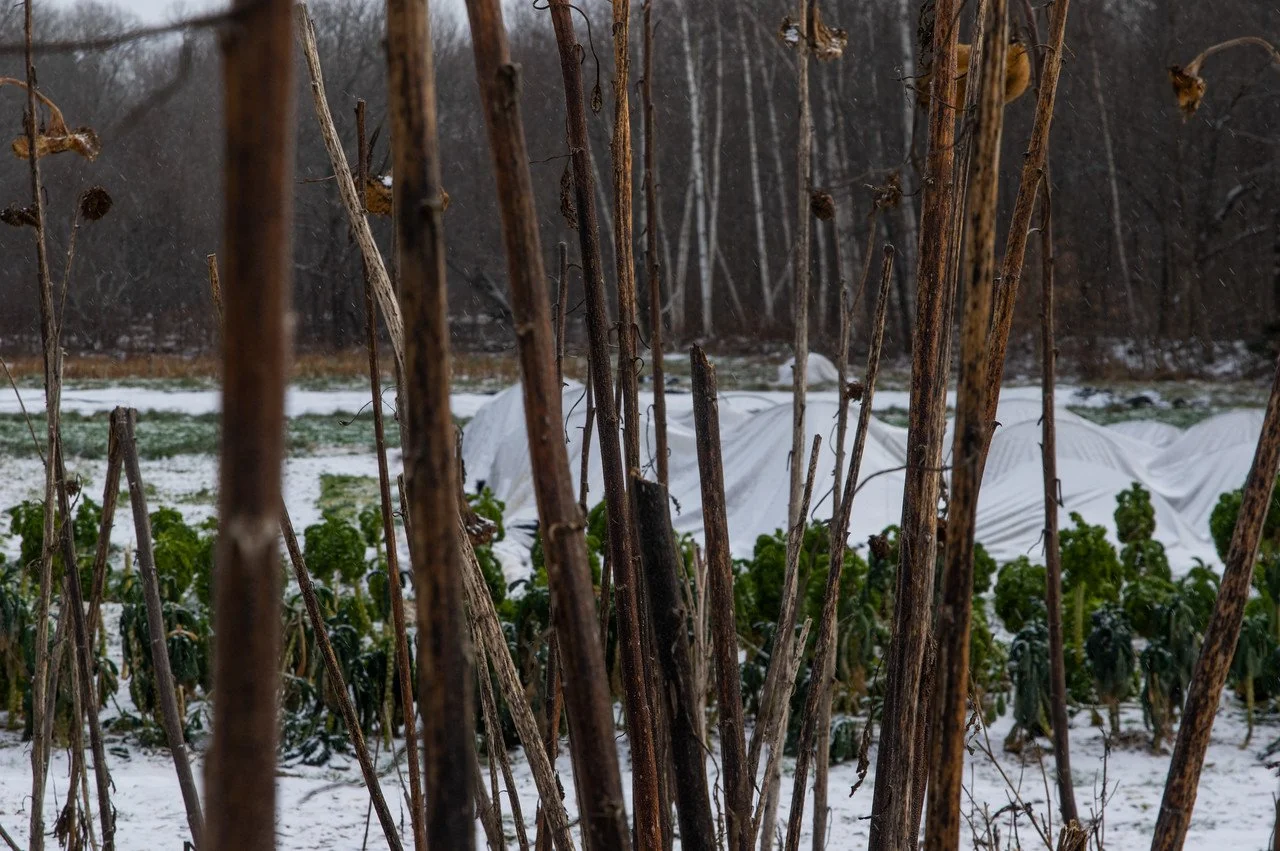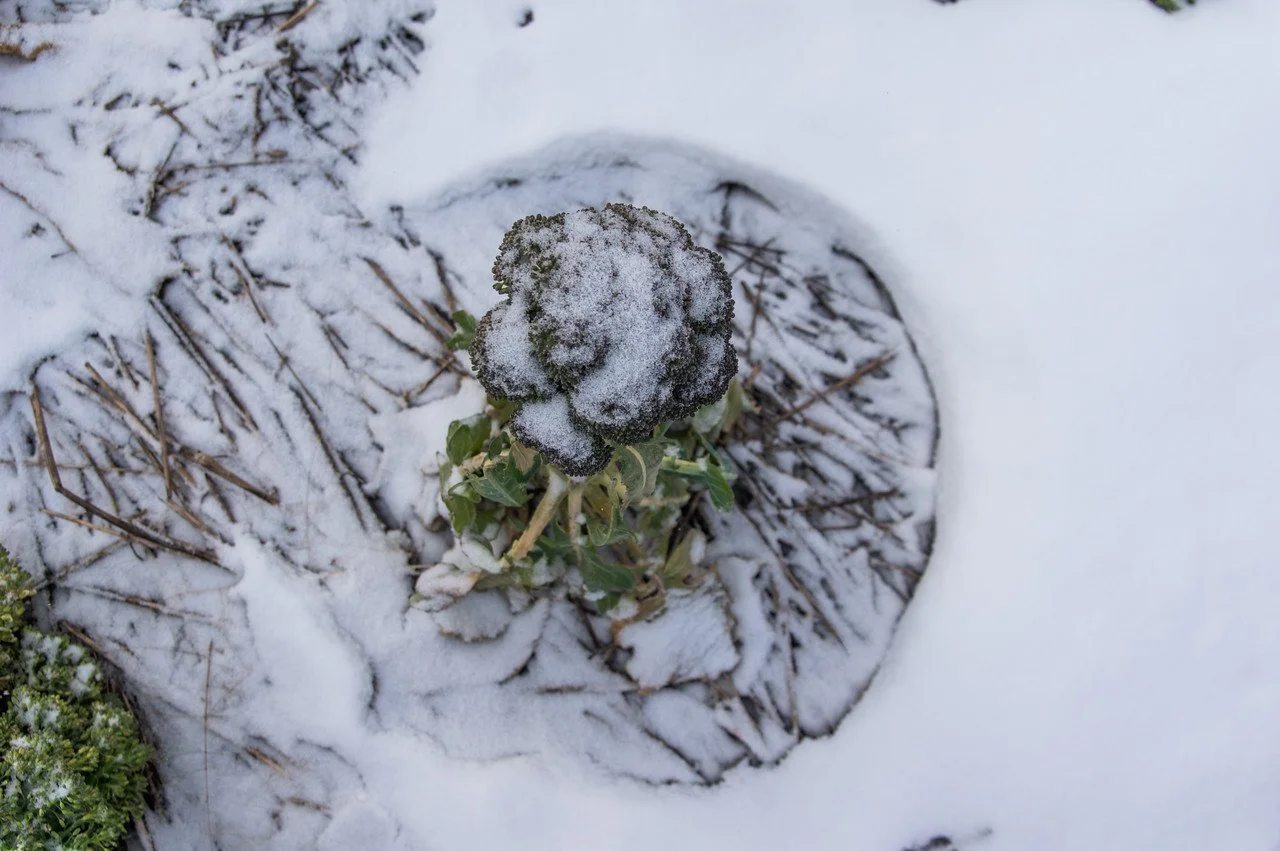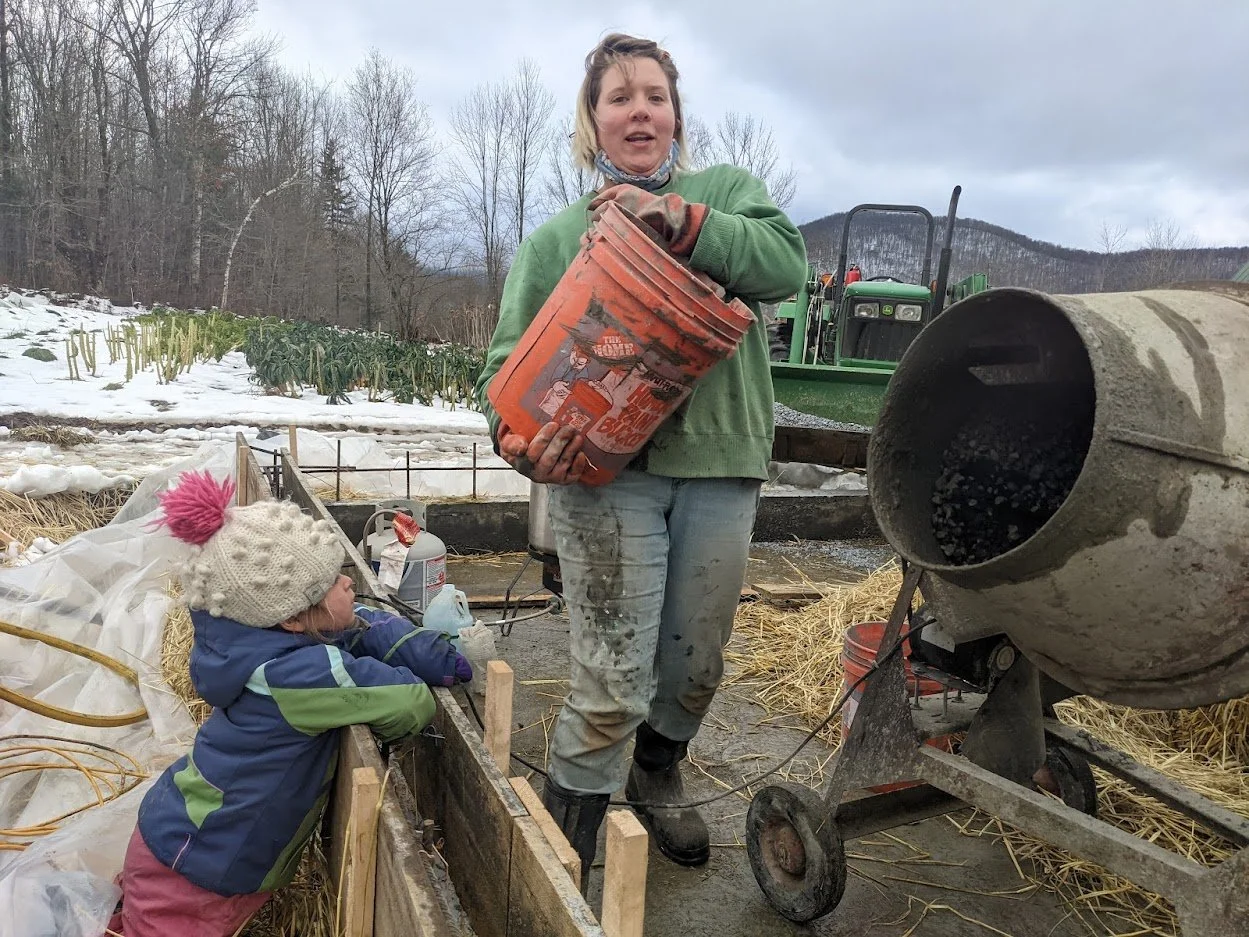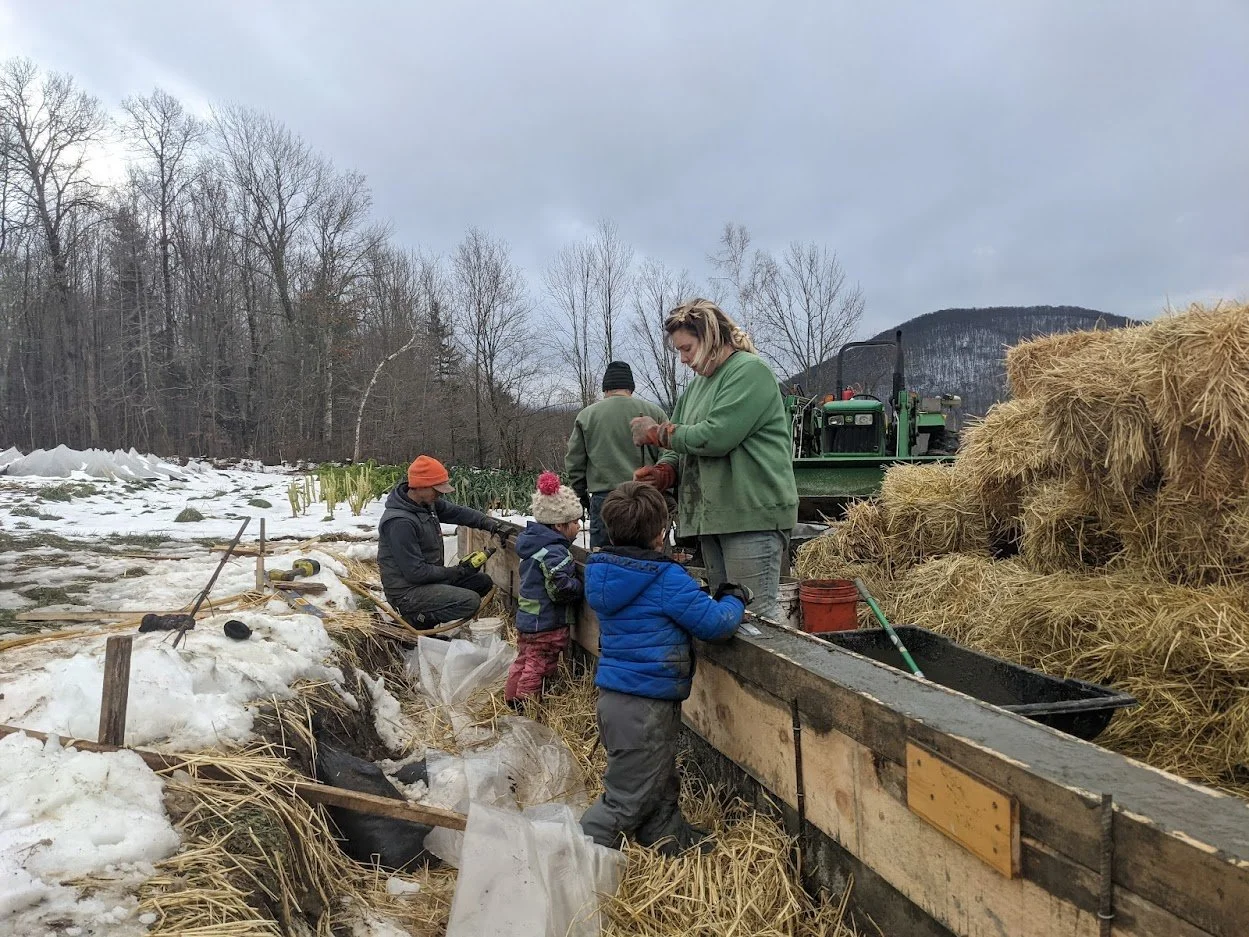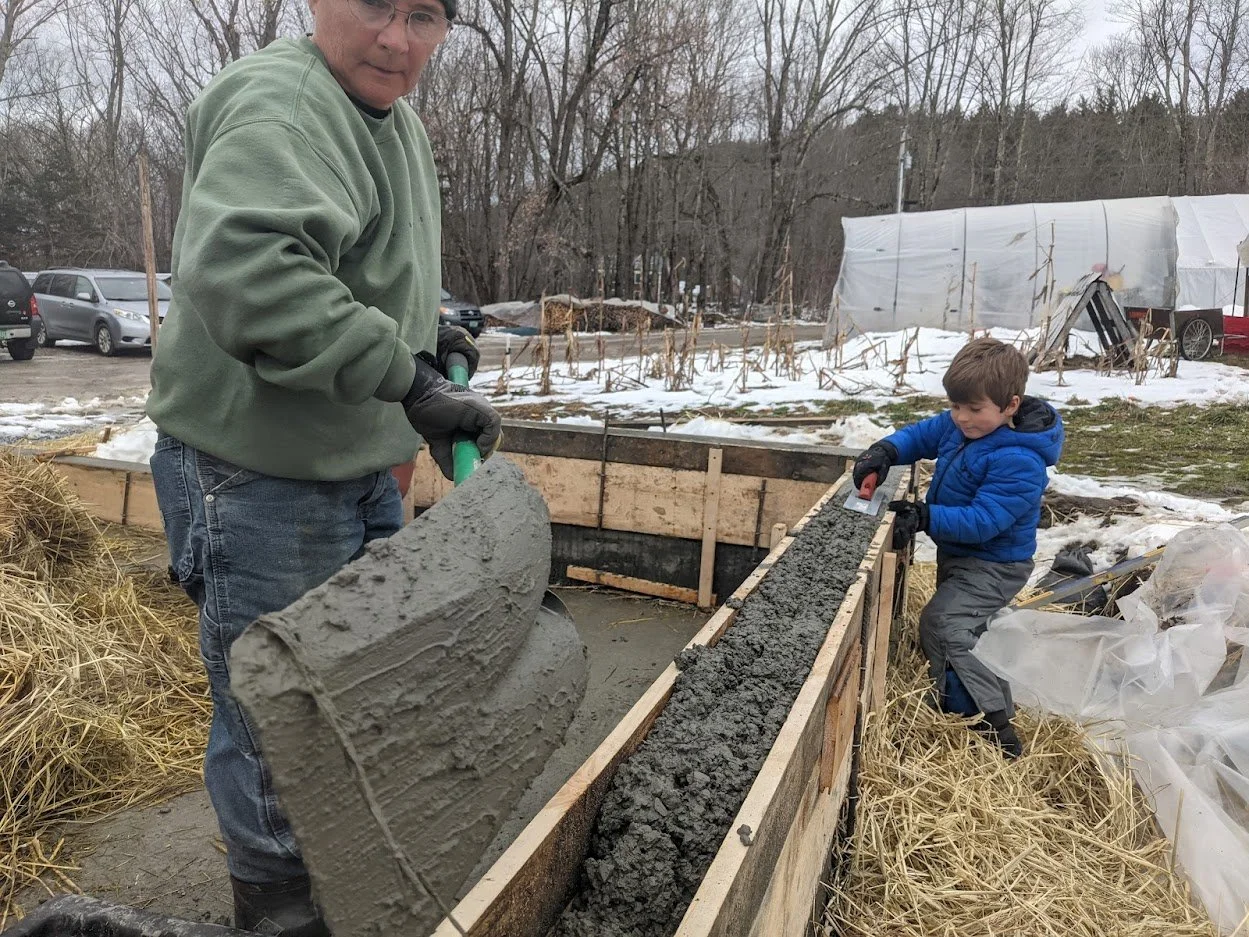9th Week of the Fall CSA: Week of December 15th
Last week’s concrete team! Thank you to Sky, Cindy, Morgan, and Ryan for getting the retaining walls finished!
This Week’s Availability
This week we will have leeks, kohlrabi, red beets, yellow beets, rainbow mix of daikon radishes (red, purple, and white), watermelon radishes, shallots, red and yellow onions (Juniper Hill), carrots, garlic, green cabbage, red cabbage, red and yellow potatoes (Atlas Farm), fingerling potatoes (Clearfield Farm), celeriac, red and green napa cabbage, rainbow chard, baby bok choi, green curly kale, lacinato kale, romaine lettuce, mini-lettuce heads, baby lettuce, spinach, mesclun mix, tokyo bekana*, baby kale, claytonia, frozen cherry tomatoes, and frozen heirloom/beefsteak tomatoes!
*Tokyo bekana is a lime green salad green, very tender, mild, and delicious!
Fill out the delivery form by noon on Tuesdays.
You do not need to fill out the form if you plan to come to the barn on Wednesdays or Thursdays to pick out your items yourself.
Red cabbage, too small to harvest, photo by Adam Ford
Green napa with too much slug damage to harvest, photo by Adam Ford
Bulk vegetables available for processing
If you are interested in getting a bulk amount of anything, send us an email. Thanks!
Spinach: $8 for a 1-pound bag, $22 for a 3-pound bag, and $35 for a 5-pound bag
Red and Green Napa: $1 per pound
Daikon radish (red, purple, or white): $1 per pound
Watermelon radish: $2 per pound
Carrots: $2 per pound
Green Curly Kale: $14 for 5 bunches, $24 for 10 bunches
Garlic: $12 per pound
view through the dead sunflower stalks to the spring harvested kale, photo by Adam Ford
CSA Balance Due
Payment for your fall CSA share is due unless you need a different payment plan. (And please reach out to us if you need a different payment plan, we are happy to do that.) You can mail a check to Evening Song Farm, 48 Nice Road, Cuttingsville, VT 05738, leave cash or check in the box at the barn, use this link to pay online, or call or email us to pay with EBT.
bins in the snow, photo by Adam Ford
unharvested broccoli in the field, photo by Adam Ford
Farm News
December is a busy time of year for our farm. One of the big projects we tackle in December is putting in our seed order. We use several hundred different varieties of seeds throughout the year, and it takes a long time to catalogue all the leftover seeds that still have viability, crunch notes from the season on varieties that worked well and varieties that flopped, articulate new things we want to try (heirloom cucumbers!), and challenging things we want to retire, write a full 2022 budget to see exactly what we can put towards seeds, and start spreading out the various companies’ seed catalogues we purchase from to see what’s available. And as a certified organic farm we have a lot of extra record keeping to manage when organizing a seed order. For example, if we can’t find a certified organic seed for a variety we grow, we have to create a log showing all the places we searched, and then also record proof that the non-organic seed isn’t coated with or treated with any prohibitive substance. So the seed order takes us most of the month, since we juggle other tasks as well, and we like to have it all submitted before the new year to guarantee scoring the varieties we need. If we wait until January, it becomes much more common for certain things to be out of stock already, especially with the pandemic-inspired boom of gardening hobbies. (Which we totally LOVE: The more gardens, the better the future. Plus the increased demand on seed companies signals that seed companies can trust in expansion, which is a win win for both commercial farmers and backyard gardeners.)
So far we are really happy with this year’s tunnel greens. Each year Ryan builds upon our winter techniques, and this is the first year where we don’t have a whole area where a crop has flopped so far. (In years past it’s not uncommon for a germination issue, or an army of voles who digs up transplants, or a disease to knock things out early. But now with some newly steamed soil, we aren’t seeing the same historical disease pressure, somehow voles haven’t destroyed whole plantings yet, and with diligent, timed watering and good soil coverage, we didn’t have any germination issues when greens were seeded.) It’s such a good feeling for all of it to look good. Even though we don’t heat the tunnels for winter greens production, there is still a lot of embodied cost in the building and maintenance of the tunnels, so being able to count on every square foot of production during the cold months is essential.
Have a great week,
-ESF Team: Kara, Ryan, Elana, Katie, Morgan, Cindy, Taylor, and Molly
Tokyo bekana peaking out of the end of the row cover. This mild, tender green is in the mesclun mix, but also bagged alone, photo by Adam Ford
Concrete mixing dream team… Soraya teaches Morgan what to do…
Whole team engrossed in their tasks
wood stacked to heat the wash station on harvest days, photo by Adam Ford
the mixer that helped us get the job done, photo by Adam Ford
Snow dusting the fields of greens we harvested only a couple weeks ago before moving harvest all indoors, photo by Adam Ford.
Concrete filling and floating dream team… Cindy loads and Sky smooths.
All bundled up to let it all cure well, photo by Adam Ford
here’s a little peak of part of the new play area we set up for our kiddo’s birthday present last month, photo by Adam Ford
Molly added some of her gorgeous art to the new play area, photo by Adam Ford




